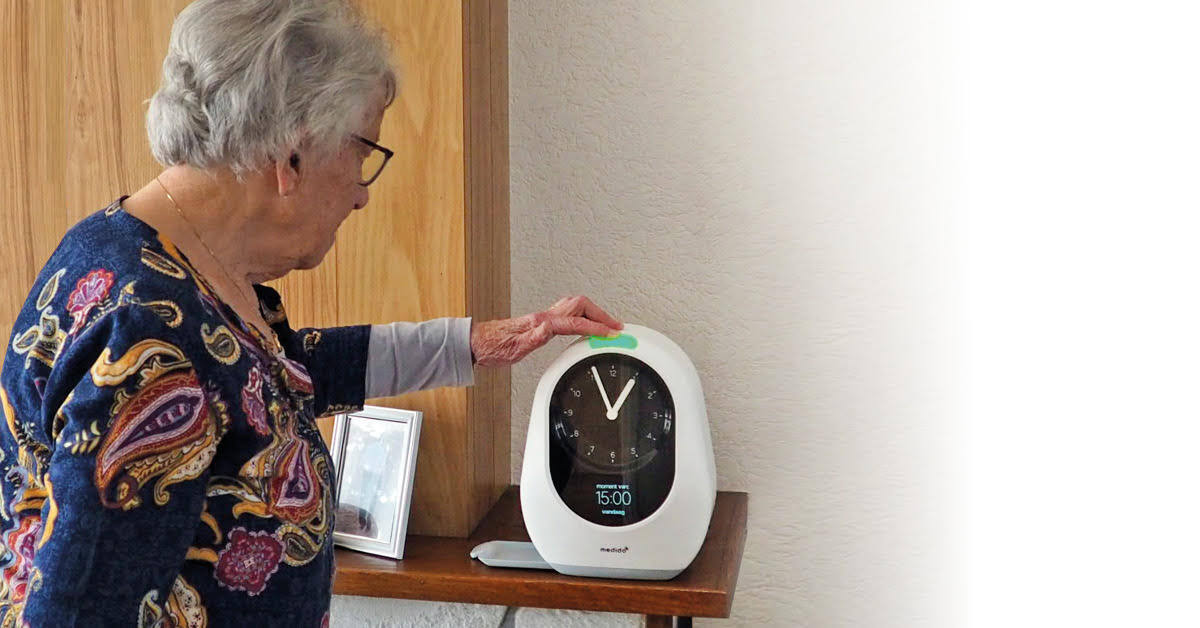Digital Transformation in Healthcare: Empowering Patients, transforming lives
Digital Transformation in Healthcare: Empowering Patients, transforming lives
The challenges facing the healthcare sector are notably significant. There is a substantial increase in demand for care amidst an exceptionally tight labor market. Additionally, an evolution in client preferences is a trend that is anticipated to become more pronounced in the coming years.
Enhancing the quality of life
Clients are increasingly seeking greater autonomy across various domains, such as how care is provided and where care is provided. Home care is a strong preference in most cases. A shift in focus away from the illness itself, with an emphasis on enhancing quality of life and promoting individual health is necessary.
Healthcare professionals are experiencing an increasing workload, partly due to the labor shortage. The global shortage of healthcare professionals is one of the most significant obstacles in ensuring universal access to healthcare. According to a rapport from the Wemos foundation, if there are no significant changes, one out of every seven people worldwide will never have access to a healthcare professional — no midwife, nurse, or doctor. This leaves one billion people without even the most basic healthcare.
Quality, affordability and accessibility of care are under pressure. This has led to a heightened call for a redesign of the current healthcare landscape. It is time for change, and the ongoing digital transformation of healthcare can serve as a facilitator for this transition.
Increased lifespans change views on healthcare
The paradigm in healthcare has increasingly shifted over the past century from ‘survival’ and ‘longer life’ towards ‘meaningful living’. In the 19th century, survival was paramount. People lived to an average age of 45, facing significant hygiene challenges and infectious diseases dominating existence. The advent of sanitation – a major game-changer – substantially increased the average lifespan in the 20th century. People, on average, lived to be 65 years old in the 20th century, with the focus on living longer. There was optimism as knowledge about effective care had significantly advanced. Collaboration among specialists in hospitals led to better treatments.
In the 21st century, the paradigm shifts towards meaningful living, emphasizing the importance of healthier years. We are substantially older than decades ago (with an average lifespan of 85 years), and diseases that were once fatal have become chronic. How individuals choose to address their vulnerabilities is increasingly a personal consideration rather than purely medical. This requires financiers, providers, and professionals to develop a more comprehensive view of healthcare and well-being to improve health while ensuring affordability, availability, and accessibility of care.
E-health is a huge game-changer in 21th century
To empower individuals to define what constitutes a meaningful life, healthcare technology, digital care, data, and data analysis are crucial. These not only provide insight into one's health status and potential risks and preventive measures but also offer concrete personal tools to manage the care process at home. Thus, healthcare technology, digital care, and data analysis are the potential game-changers of the 21st century. Much like sanitation, clean drinking water, and livable housing were in combating infectious diseases in the 19th century. Presently we mainly see a focus on hybrid care, a combination of physical and digital care.
The healthcare transformation is characterized by several significant shifts. This includes an emphasis on prevention, well-being, and maintaining health, working within a healthcare ecosystem that prioritizes collaboration, placing more emphasis on value over volume, increasing patient/client responsibility and providing more personalized care. Of course it should be mentioned that the accessibility of care should be equal no matter your race, age or wealth.
Data-driven healthcare is the future
A crucial contribution to these shifts is made by data-driven healthcare, wherein mirror information, decision support systems, assisted intelligence, and ultimately artificial intelligence (AI) become integral parts of the patient journey and treatment process. This is likely to enable patients and healthcare providers to implement personalized prevention measures to prevent (further) healthcare needs while it also provides greater insight into their current health status. This in turn ensures better anticipated appropriate care, personalized healthcare, and future health issues. Additionally, patients will receive personalized care tailored to the individual patient's data profile, increasing the likelihood of success (first time right). In essence, both patients and healthcare providers gain greater insight and autonomy. Additionally, it substantially reduces the workload of healthcare professionals.
Patients are empowered to take control of their health and well-being
The future of health technology and digital healthcare lies in an ecosystem where all health and care stakeholders collaborate within an open yet interconnected network. This network provides a combination of both digital, personal, and if necessary, physical care (hybrid care). It is supported by real-time and predictive insights, delivering the right information at the right time and place.
The result is an effective 'patient-centered' journey, where the patient can be much more in control. Treatments are not focused on optimizing individual interventions, but on optimizing health from the perspective of the patient's daily life. Through digital tools and personalized insights and solutions, people (patients) are empowered to take responsibility for their health and well-being. This ultimately leads to a clear shift from providing care to preserving health in the long term.
Interested in hearing expert opinions surrounding this subject?
On the 10th of April our webinar titled ‘Health Economics’ took place. Kevin Doughty joined us in the role of UK expert to share his vision and knowledge surrounding this topic. Kevin is an experienced consultant and educator with over 25 years of experience in the use and development of technologies to support independent living in older and/or disabled people. These skills and knowledge have enabled him to understand international, national, and local government policies, demographic changes, and their impact on commercial operations.
You can watch the webinar by clicking this link.
You May Also Like
These Related Stories

Medido: more than a medicine dispenser

Benefits of Medido: experiences of a care provider

